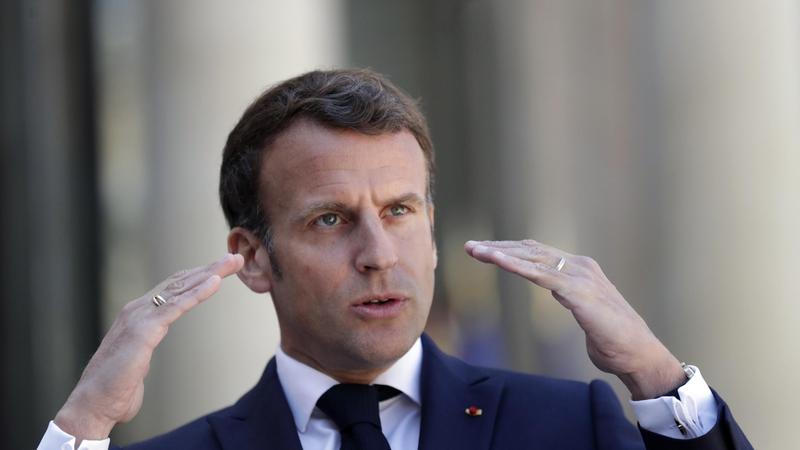Published 22:10 IST, April 24th 2024
Macron wades into a very French debt crisis
France is unlikely to ask the IMF or its European partners for a Greece sort of a bailout.

Fiscal ennui. Emmanuel Macron is not having a good spring. The French president seemed to wake up a month ago to the unpleasant surprise that his country’s budget deficit had ballooned to 5.5% of GDP last year. Some bond investors are already shying away from French debt, according to a recent Reuters report. And government officials are worrying about the rating agencies Moody’s and Fitch, which will decide on Friday whether or not to downgrade France’s sovereign debt from its “stable” outlook.
France, the euro zone’s second-largest economy, is unlikely to ask the International Monetary Fund or its European partners for the type of bailout that Greece, Ireland or Portugal received in 2010-2011. The country is instead inventing a crisis of its own, forced into an austerity programme that could leave lasting economic and political scars.
Even as some investors got cold feet about French bonds, the broader markets remained sanguine. Yields on France’s 10-year bonds, now at 3%, have moved in sync with benchmark German bunds in recent months. At around 55 basis points, the spread – the difference between the return investors demand on French bonds compared to its larger neighbour’s – has not budged much since the beginning of the year. But that partly reflects Germany’s economic crisis. In the same period, Italy’s and Spain’s spreads with Germany have narrowed by 40 and 30 basis points, respectively.
Investors know that France is the only major euro zone economy whose debt load, now at 110% of GDP, did not shrink last year as other European governments started to unwind the fiscal support doled out during the Covid-19 and energy crises. They also know that the government’s pledge to bring the budget deficit below 3% of GDP by 2027 has been slammed as overly optimistic by both the country’s fiscal watchdog and even the central bank. It has already been revised upwards to 5.1% of GDP this year.
Because of Macron’s long-standing neglect of the issue, his government is now scrambling to come up with a rushed deficit-reduction plan for this year and next. Improvisation leads to a focus on the wrong side of the equation – trying to cut spending in a hurry, starting with unemployment benefits.
With France’s public spending now at 56% of GDP – compared to Germany’s 48% – there is a large scope for targeted savings, such as less generous public pensions or a more rational housing policy. Still, France has not massively increased public spending of late. In the 10 years from 2014 to 2023, government total expenditure increased by 30%, compared to 58% in Germany, according to IMF data.
Furthermore, last year’s budget surprise was caused by lower tax receipts. This was due to slower growth than expected, as well as Macron’s and his finance minister Bruno Le Maire’s obsession with cutting taxes. Even the Banque de France, in its report, urged the president to “at least stop lowering” taxes. That should start with closing the loopholes, exemptions and rebates created over the years to placate different lobbies, which have mostly benefited the richest households and largest companies, noted the central bank. Macron can no longer run for reelection, so he has nothing to fear from the political fallback. The same cannot be said of Le Maire, whose presidential ambitions are an open secret.
The danger of focusing on spending cuts is both economic and political. Austerity in a downturn will crimp growth and only shrink tax receipts further. And even after being revised downwards, the government’s forecast of an economy expanding by 1% this year seems optimistic – the IMF sees growth of just 0.7%. With a minority in parliament, Macron could well have to face new street unrest, and another spike in the popularity of radical parties on both ends of the political spectrum. A political crisis after an ill-timed austerity programme to fend off a debt crisis: in that respect at least, France would repeat the euro zone’s mistakes of 2010.
Updated 22:10 IST, April 24th 2024





